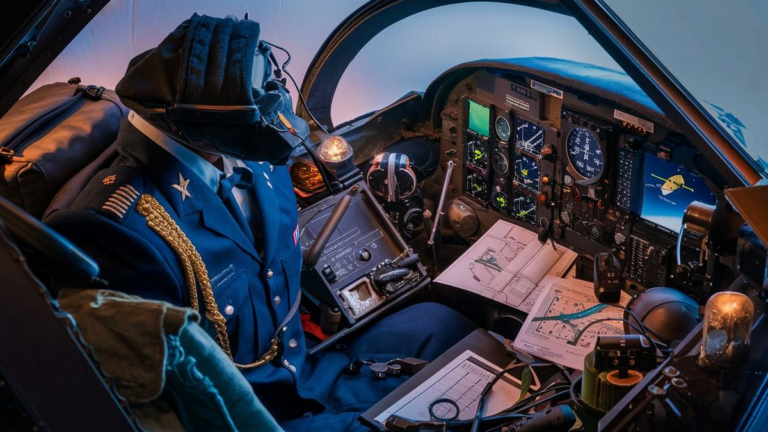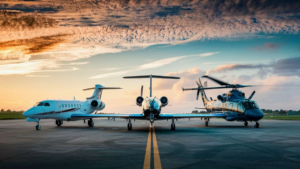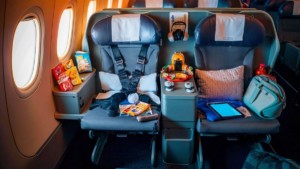As aviation enthusiasts or passengers, we often see pilots as the sole commanders of an aircraft, but behind every flight, there is a well-coordinated team ensuring safety and efficiency. The first officer, also known as the co-pilot or second in command, plays a crucial role in the operation of an aircraft.
Responsibilities of a First Officer
The first officer works alongside the captain, assisting in various tasks before, during, and after a flight. While their specific duties may vary depending on the airline and type of aircraft, their primary responsibilities include:
- Assisting the captain in pre-flight preparations, such as conducting pre-flight inspections and reviewing the flight plan.
- Operating the aircraft’s controls and systems during flight, including takeoff, landing, and navigating through different phases of flight.
- Monitoring the aircraft’s instruments and systems to ensure they are functioning correctly.
- Communicating with air traffic control and other aircraft to maintain safe spacing and routing.
- Assisting in emergency procedures and decision-making, such as managing system failures or adverse weather conditions.
- Supervising the cabin crew and ensuring the safety and comfort of passengers throughout the flight.
- Completing post-flight procedures, such as filling out flight reports and debriefing with the captain.
Training and Qualifications
Like captains, first officers undergo rigorous training and must meet specific qualifications before assuming their role. Typically, they hold commercial pilot licenses and have logged a considerable number of flight hours, often starting as flight instructors or in other entry-level positions.
Additionally, first officers undergo extensive training with their respective airlines, which includes simulator sessions, classroom instruction, and proficiency checks. This training covers a wide range of topics, including aircraft systems, emergency procedures, crew resource management, and company policies.
Career Progression
For many first officers, the role serves as a stepping stone towards becoming a captain. As they gain experience and accumulate flight hours, they may advance within their airline or seek opportunities with other carriers. Some first officers pursue additional certifications and ratings, such as type ratings for specific aircraft or advanced flight instructor qualifications.
Furthermore, the role of a first officer offers valuable experience in leadership, decision-making, and teamwork, which are essential skills for advancing in the aviation industry.
In essence, the first officer plays a vital role in ensuring the safe and efficient operation of an aircraft. Working closely with the captain, they form a dynamic team that navigates through various challenges and ensures the comfort and safety of passengers. Through extensive training and experience, first officers contribute to the overall success of each flight and play a pivotal role in the aviation industry.
Frequently Asked Questions
Here are some frequently asked questions about the role of a first officer:
| Question | Answer |
|---|---|
| What are the main responsibilities of a first officer? | The main responsibilities of a first officer include assisting the captain in pre-flight preparations, operating the aircraft’s controls during flight, monitoring instruments and systems, communicating with air traffic control, assisting in emergency procedures, supervising cabin crew, and completing post-flight procedures. |
| What qualifications are required to become a first officer? | First officers typically hold commercial pilot licenses and have logged a significant number of flight hours. They also undergo extensive training with their respective airlines, covering topics such as aircraft systems, emergency procedures, crew resource management, and company policies. |
| Is being a first officer a stepping stone to becoming a captain? | Yes, for many first officers, the role serves as a stepping stone towards becoming a captain. With experience and accumulated flight hours, they may advance within their airline or seek opportunities with other carriers. Some also pursue additional certifications and ratings. |
| What skills are essential for a first officer? | Essential skills for a first officer include leadership, decision-making, teamwork, effective communication, problem-solving, and situational awareness. These skills are crucial for ensuring the safe and efficient operation of an aircraft. |
Work-Life Balance
One aspect often overlooked is the work-life balance of first officers. Due to irregular flight schedules and time away from home, maintaining a balance between personal and professional life can be challenging. However, many airlines offer policies and support systems to help their pilots manage their schedules and well-being.
See also:






